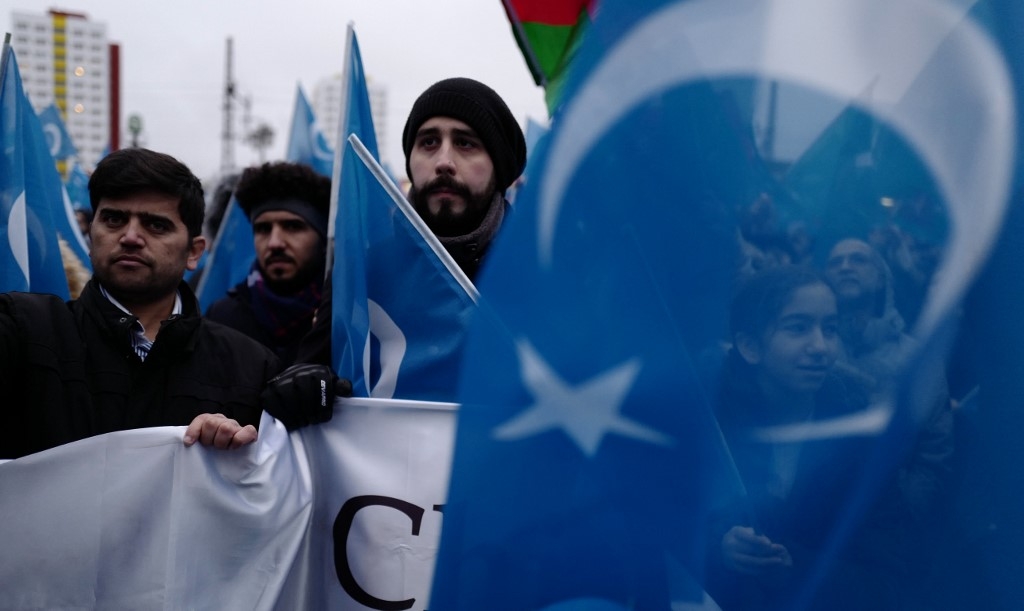HRW calls on Saudi Arabia to reveal status of detained Uighurs

Human Rights Watch has called on Saudi Arabia to "immediately disclose" the status of two Uighur Muslim men who were detained in the country last week, amid fears they could be deported to China.
"Saudi Arabia's attempts to seek positive publicity through hosting the G20 would be severely undercut if it detains and forcibly returns fellow Muslims back to unbridled persecution in China," Joe Stork, deputy Middle East director at Human Rights Watch, said in a statement.
"Saudi authorities should immediately disclose the status of the Uighur detainees and clarify why they arrested them," he added.
On Monday, Middle East Eye reported that Aimadoula Waili, also known as Hemdullah Abduweli, a 52-year-old Uighur Muslim religious scholar, was arrested in the city of Mecca along with his friend Nurmemet Rozi.
Both individuals, who are Turkish residents, are currently being held in the Buraiman prison in Jeddah with no charges against them.
Waili travelled from Turkey to Saudi Arabia in February to perform the Umrah pilgrimage and has stayed in Saudi Arabia since then.
According to Uyghur activist Abduweli Ayup, Waili was targeted as he is an influential religious scholar and was previously arrested in Xinjang in 2013 and 2014 for his preaching.
Ayup said that because of Waili's record as a political prisoner in China, Beijing has continued to harass and pursue him abroad.
Saudi 'endorsement of China's persecution'
In October, a BBC Newsnight report revealed multiple cases where Uighur students abroad had been targeted in Muslim-majority countries, in collaboration with Beijing, in order to force them to return to China.
The Uighurs total about 10 million people in their home province - a number that is increasingly being outnumbered by ethnic Han Chinese who have settled in the region.
At least one million Uighurs are said to be held in internment camps where they are undergoing political "re-education", while the region itself is under intense and intrusive surveillance. The Chinese government is also accused of implementing forced labour and forced sterilisation of Uighur women.
Last year, the China cables leak identified nearly 6,000 Uighurs living abroad or possessing papers to travel that were being tracked by the government.
The arrests occurred on the eve of the G20 summit in Saudi Arabia, which was an attempt by the kingdom to show off its modernisation and reforms while at the same time being criticised by rights groups for its jailing of dissidents and activists.
Riyadh, which has signed a $28bn trade deal with Beijing that has expanded the two countries' ties, has previously come under fire after Crown Prince Mohammed bin Salman defended China's crackdown on Uighurs.
In February 2019, the Saudi crown prince said Beijing "has the right to take anti-terrorism and de-extremisation measures to safeguard national security".
"Mohammed bin Salman's apparent endorsement of China's persecution of the Muslim Uyghur community is bad enough, but his government should not play a direct role in it by deporting Uyghur men back to possible arbitrary detention and torture," Stork said, using another spelling for the Muslim minority group.
Middle East Eye delivers independent and unrivalled coverage and analysis of the Middle East, North Africa and beyond. To learn more about republishing this content and the associated fees, please fill out this form. More about MEE can be found here.






